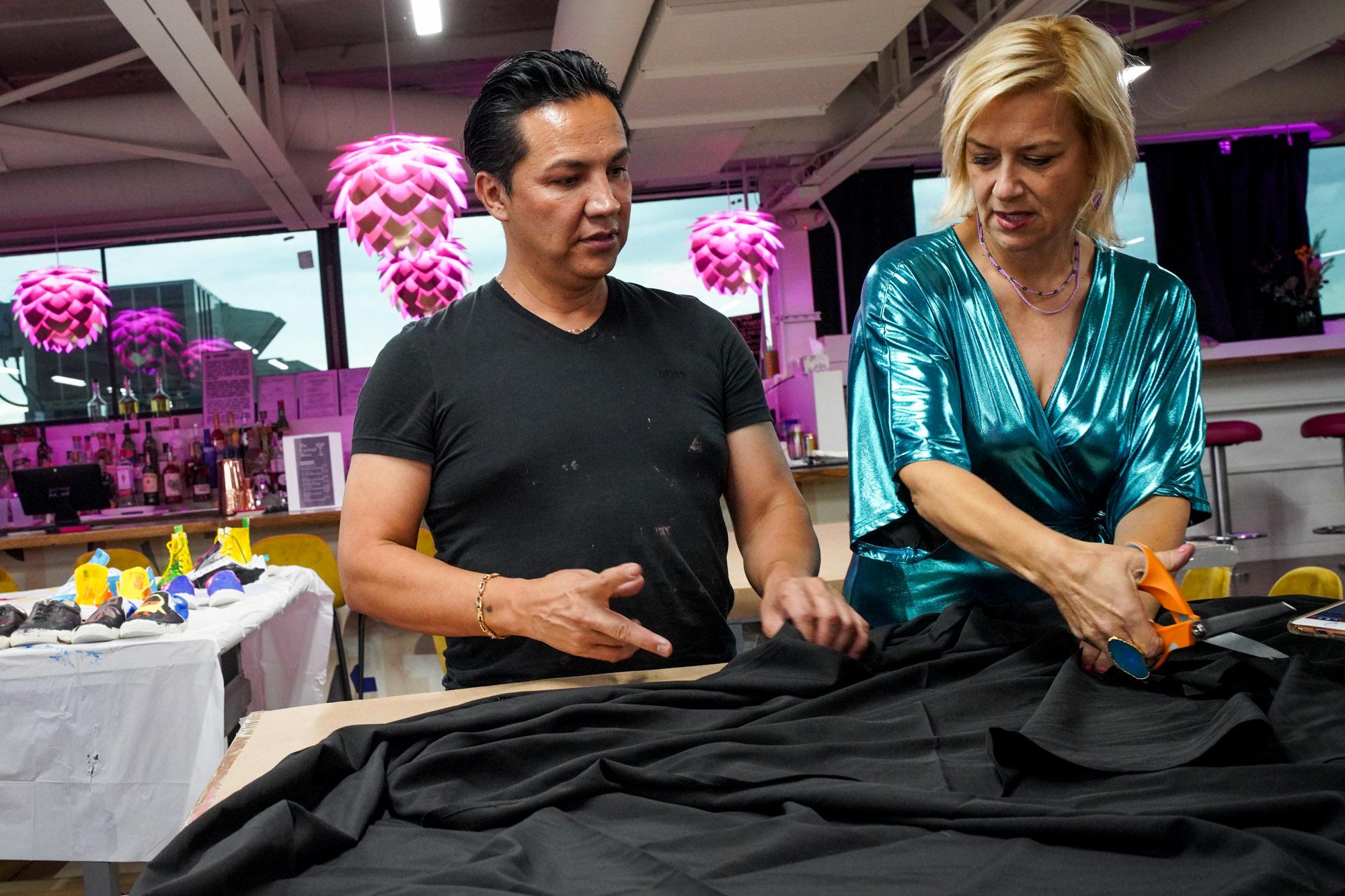
You’ve heard of farm-to-table food and locally brewed beer in Colorado. But what about locally made clothes? A new movement is taking hold among artisans in the state, and one spot in Aurora is at the center.
Tucked into Aurora’s Stanley Marketplace, Factory Fashion is, in part, a fashion design studio and part sewing school for youth through adults.
Owner Skye Barker Maa also supports Colorado designers bringing their work to market with a small batch manufacturing program.
“We are an incubator for designers,” Barker Maa said. “They can come work here, and they can rent booth space here.”
Four designers are currently participating in the Factory Fashion Small Batch Manufacturing initiative. To produce the clothing, the sewing students receive training in skills ranging from the fundamentals to haute couture. Lisa Ramfjord Elstun, one of the instructors at the factory, explains that the program enables local designers to participate in the vital "made local" project.
“They want ‘made in Colorado,’ and it's just like the farm-to-table or the craft beer industry,” Ramfjord Elstun said. “People wanna know where their clothes are made. And so if we can say they're made here in Denver and in Colorado, it would be fun to see that happen."
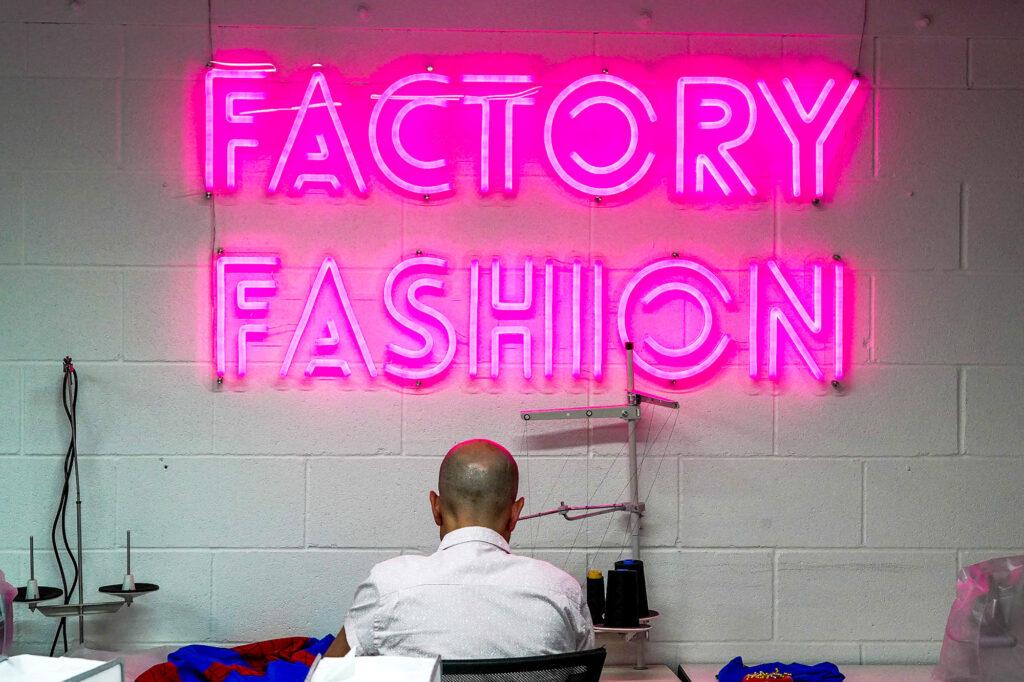
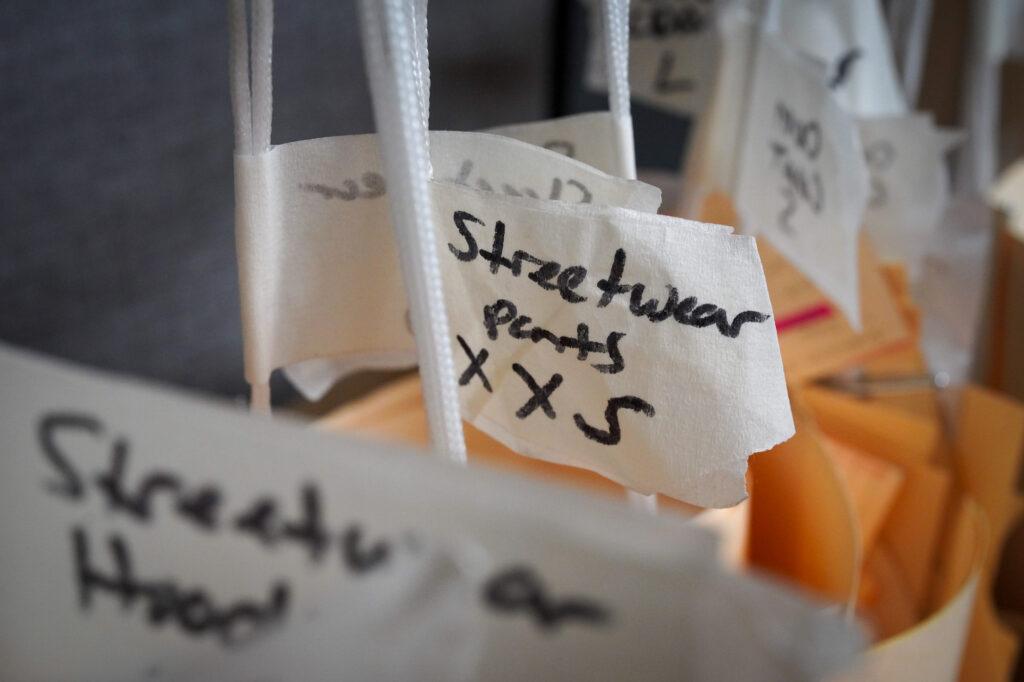
Ramfjord Elstun is an award-winning bridal and lingerie couturiere who has worked toward this idea for the past eight years, so she was excited when Barker Maa asked her to join the program.
“I would love to have all levels of experience to work with,” Ramfjord Elstun said. “And because the faster that we can get to higher level skills, the faster we can bring in more designers.”
And the clothes they make are as varied as the people in Colorado. All around the bright space, waiting for the next batch of artists to get to work, are rows of sewing machines, work tables, and sergers.
One of the designers working with Factory Fashion, Norberto Mojardin, said the program is more than an opportunity to grow his own business. The Mexico-born designer’s work takes inspiration from a wide range of Latino cultural elements, and he is co-owner of Beto's Hair Studio.
“Not only thinking of myself, but for my community, also opening doors for designers, our youth, our kids — but older, also — that they don't consider themselves designers," Mojardin said. "They say, 'Oh, I'm just a seamstress.’ And I always tell them, ‘No, you're not just a seamstress. You are a designer, and you can create, and you can do more than what you think.’”
Barker Maa said the school doesn’t just help people learn how to make clothes, but also how to get their work in front of people who might buy it — to start building a following.
“I think part of the challenges that young designers have, especially local, is that when they're trying to actually bring their clothes to market, they're typically getting routed to LA to source," Barker Maa said. “And so you know, they're bumping into people, manufacturers who want minimums that are incredibly high. They might wanna sell five to 10 pieces or 50 pieces — or less — as a small designer."
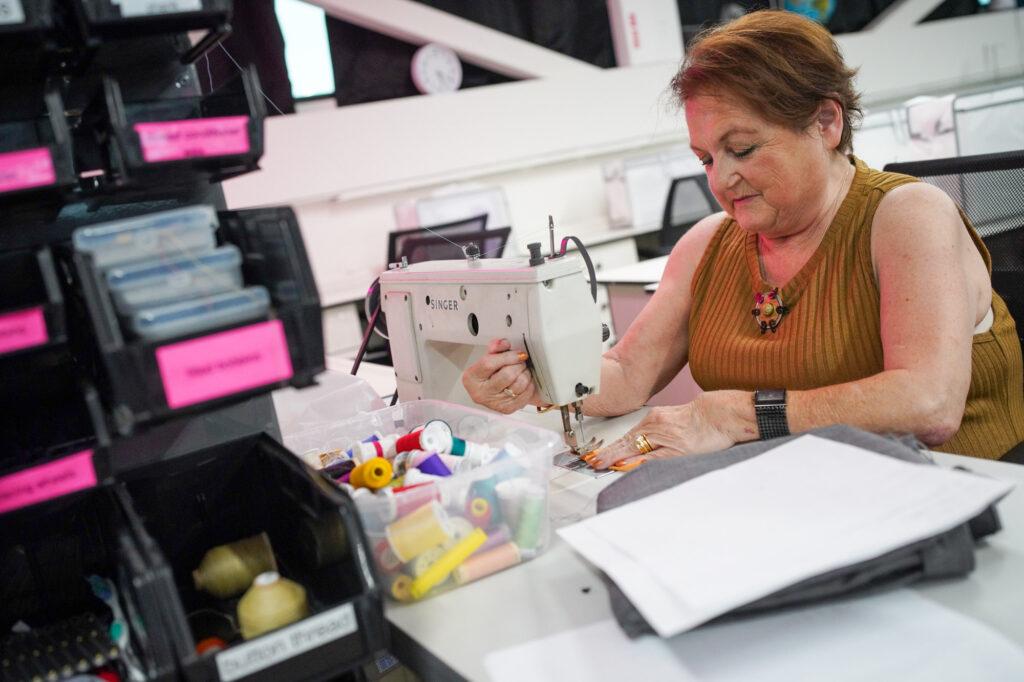
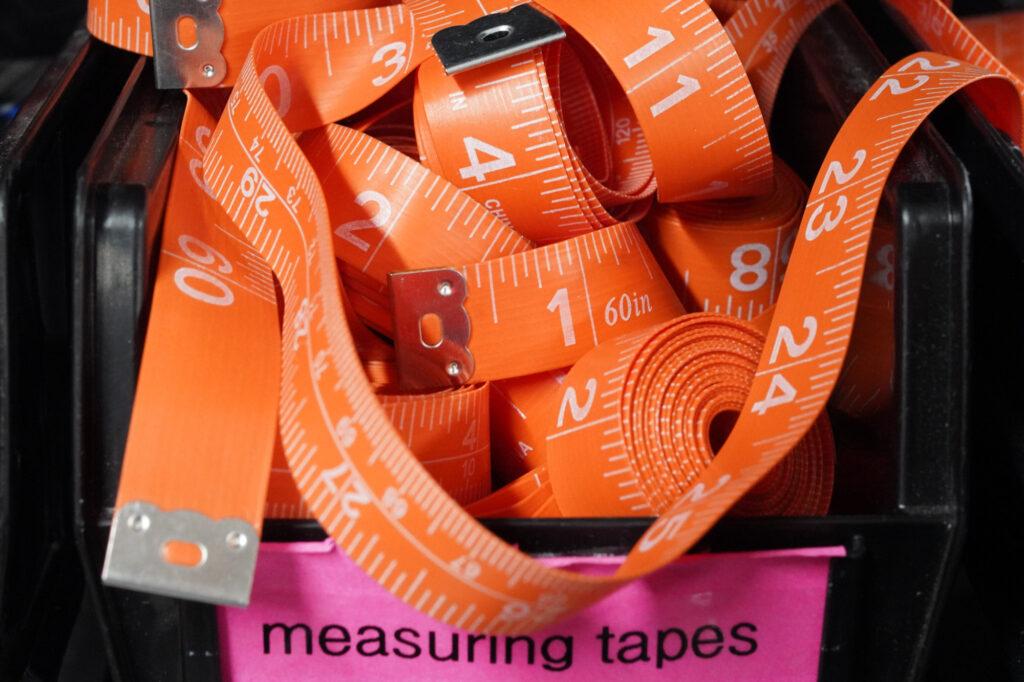
And Ramfjord Elstun said just having the opportunity to learn from others and get experience with the machines can make a difference for new designers … just like what Factory Fashion offers.
“Designers truly, as they are starting their lines, don't have access to the type of equipment or skill levels that a facility like this will offer," Ramfjord Elstun said. “And we have such a wide range of skills of the teachers and the workers here, as well as the designers, that we can call on a whole lot of people to assist us right here.”
The program is also part of the bigger conversations around bringing manufacturing jobs back to the U.S. and re-evaluating trade school education.
“What we are able to do and found out during the pandemic is that sewers were, and are, an essential person that needs to be employable in this country,” Ramfjord Elstun said. “We haven't had [home economics] in the high school curriculums for almost 30 years. The technology that's available in bringing back advanced manufacturing for the sewing goods industry requires much more than your-grandma's-sewing-machine-on-the-kitchen-table kind of mentality.”
And the net Factory Fashion casts in attracting more people to the industry is even wider. It also focuses on including refugee communities and those leaving the prison population.
“You know, we have opportunities for these populations to begin a career and a career that offers benefits and a career that offers financial stability,” Barker Maa said.
And Barker Maa dreams big: She said she even dreams that one day the program can offer its students help on a path to citizenship, if they need and want that.
“You know, we're trying to train into a highly skilled environment,” Barker Maa said. “And so we're also working really hard with local nonprofits to provide a path to citizenship and a place for home, if that's something that you need as well. So those are things that are important in addition to a love of fashion and the excitement of what we do. But, I think there's just a lot here that we're trying to explore.”








